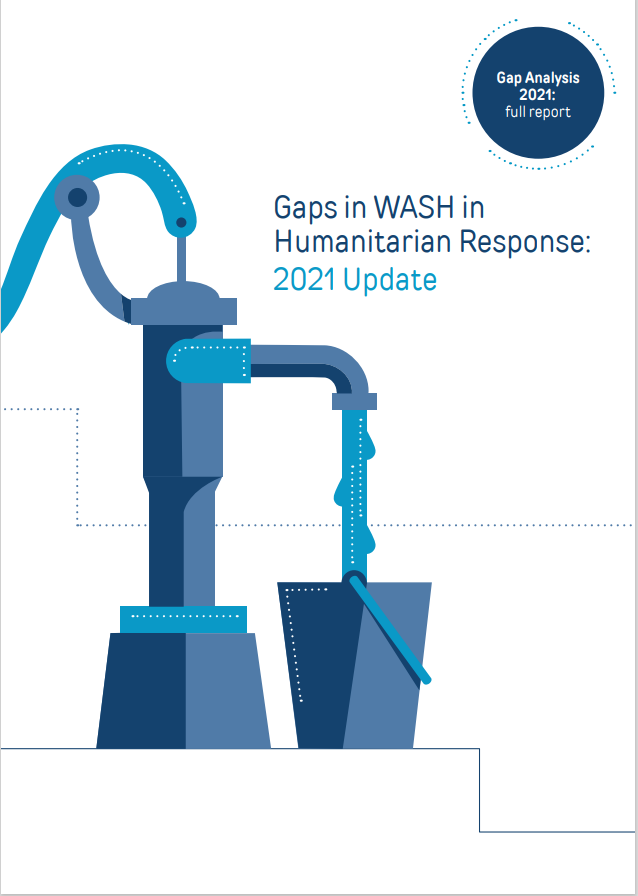Gaps in WASH in Humanitarian Response
Author: Lantagne, D., Ngasala, T., Hutchings, P., Bastable, A., Allen, J., Hestbæk, C., Ramos, M.
Year: 2021
Publisher: Enhancing Learning and Research for Humanitarian Assistance (ELRHA) , Oxford Committee for Famine Relief (OXFAM), Tufts University, Cranfield University, University of Leeds, Global WASH Cluster (GWC)
With humanitarian emergencies occurring at increasing rates and affecting a growing number of people, evidence-based strategies and new solutions – including in water, sanitation, and hygiene (WASH) – are vital to ensure people have their essential needs met, can live in dignity and are protected from WASH-related diseases.
‘Gaps in WASH in Humanitarian Response: 2021 Update’ reveals the most pressing WASH challenges facing communities affected by crises worldwide.
This gap analysis is informed by the most comprehensive global WASH data collection of its kind, with more than 1,700 people affected by crisis sharing their views and experiences along with almost 700 in-country WASH practitioners. In addition to this, a survey was conducted with 246 global WASH practitioners and a review of 614 academic articles and grey literature publications was completed.
The gap analysis identifies the priority gaps in humanitarian WASH systems and responses that are limiting the sector’s potential to meet essential needs, minimise WASH-related disease, restore life with dignity to people experiencing emergencies and strengthen their resilience.
Would you like to see other resources here?
Give us your feedback"*" indicates required fields
Still have questions?
You could not find the information you were looking for? Please contact our helpdesk team of experts for direct and individual support.


